Middle East Political Economy Summer Institute Network
SUMMER INSTITUTE PARTICIPANTS
2016 Workshop: Educators
Sayres Rudy: Marx and Capital
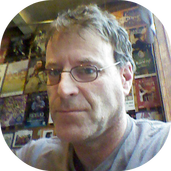
Sayres Rudy researches and teaches political economy and theory, focusing on the MENA region in comparative perspective. He has written on the institutional sources of collective protest decisions, in part to address enduring problems in the philosophy of social science, concept formation, discourse analysis, and mechanisms of subjectivity as they define state/non-state political strategies. Sayres is currently completing two manuscripts on the political economies and subjectivities of social citizenship: a comparative study of sovereign states and protest trajectories in Algeria, Poland, and Venezuela; and an empirical-theoretical work on post-sovereign fugitive liminality, such as protest-suicidal ideation, the tragic silences of the BDS movement, and adoptee neurosis under neoliberal bio-politics. Sayres has lived or researched in Algeria, Egypt, Jordan, Palestine, Syria, Lebanon, Sudan, Turkey, Poland, and Vienna. He has taught comparative politics, political philosophy, and social theory principally in the Social Studies program at Harvard University, the Political Science Department at Amherst College, and the School of Critical Social Inquiry at Hampshire College. He has an MA in international relations from Johns Hopkins, SAIS, a PhD in political science Columbia University, and a sordid history of public addresses to support intersectional de-colonizations across the Global South.
Max Ajl: Marx and Capital
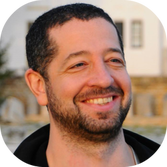
Max Ajl is a doctoral student in Development Sociology at Cornell University. He currently is based in Tunis, where he is doing his dissertation research on state agricultural development policy and the politics of price fixing during the era of state-directed development and the transition to capitalist agriculture in the countryside. His fields of expertise include comparative international development, political economy of social change, world-systems theory, Middle East political economy, and rural political economy. His academic writing has been published in many venues, including Historical Materialism, MERIP, and the Journal of Palestine Studies. He has presented at universities in Tunisia and across North America, including at Cornell, Columbia, and the University of California – Berkeley. He co-edits the Palestine page at Jadaliyya.
Adam Hanieh: Class Formation

Adam Hanieh is a lecturer in the Development Studies Department of the School of Oriental and African Studies (SOAS), University of London. He is author of the forthcoming book, Capitalism and Class in the Gulf Arab States (Palgrave Macmillan, 2011). His upcoming book, Lineages of Revolt: Issues of Contemporary Capitalism in the Middle East, will be published by Haymarket Press in September 2013.
James Boyce: Political Economy of the Environment
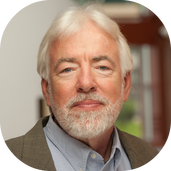
James K. Boyce is professor of economics at the University of Massachusetts Amherst, where he directs the environment program at the Political Economy Research Institute. His latest book, Economics, the Environment, and Our Common Wealth, was an American Library Association Choice Outstanding Academic Book Title for 2013. His other books include A Quiet Violence: View from a Bangladesh Village (co-authored with Betsy Hartmann); The Philippines: The Political Economy of Growth and Impoverishment in the Marcos Era; and The Political Economy of the Environment.
Sandra Halperin: State Formation

Sandra Halperin is Professor of International Relations and co-director of the Centre for Global and Transnational Politics in the Department of Politics and International Relations at Royal Holloway, University of London. Her main research areas include global development, the historical sociology of global relations, the causes and conditions of war and peace, and Middle East politics. Her research has focused primarily on the nature and shape of global development and its impact on different parts of the world. Its principal concern has been to understand how societies develop through essentially trans-national, cross-regional processes.
She is the author of three cross-regional and trans-historical comparative studies: In the Mirror of the Third World: Capitalist Development in Modern Europe (Cornell UP, 1997), War and Social Change in Modern Europe: the great transformation revisited (Cambridge UP, 2004); and Re-Envisioning Global Development: a ‘horizontal’ perspective (Routledge). She is also co-author (with Oliver Heath) of Political Research: methods and practical skills (Oxford UP, 2012), co-editor (with Gordon Laxer) of Global Civil Society and Its Limits (Palgrave/Macmillan, 2003); and author of articles on globalisation, development theory, historical sociology, nationalism, ethnic conflict, Islam, and democracy in the Middle East. She is currently at work on a study entitled The Middle East in Global Development.
She is the author of three cross-regional and trans-historical comparative studies: In the Mirror of the Third World: Capitalist Development in Modern Europe (Cornell UP, 1997), War and Social Change in Modern Europe: the great transformation revisited (Cambridge UP, 2004); and Re-Envisioning Global Development: a ‘horizontal’ perspective (Routledge). She is also co-author (with Oliver Heath) of Political Research: methods and practical skills (Oxford UP, 2012), co-editor (with Gordon Laxer) of Global Civil Society and Its Limits (Palgrave/Macmillan, 2003); and author of articles on globalisation, development theory, historical sociology, nationalism, ethnic conflict, Islam, and democracy in the Middle East. She is currently at work on a study entitled The Middle East in Global Development.
William Robinson: Imperialism
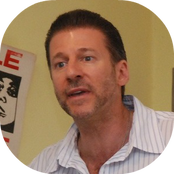
William I. Robinson is professor of sociology, global and international studies, and Latin American studies, at the University of California-Santa Barbara. He worked for a decade prior to entering academia as an investigative journalist in Central America and has lectured widely at universities around the world on the topics of the global economy, international politics, and contemporary world affairs. He is active in several social justice movements, including immigrant rights in the United States and justice for Palestine. Among his many award-winning books are Global Capitalism and the Crisis of Humanity (Cambridge University Press, 2014), Latin America and Global Capitalism: A Critical Globalization Perspective (Johns Hopkins University Press, 2008), and A Theory of Global Capitalism (Johns Hopkins University Press, 2004). He writes as well for a variety of academic and global justice news outlets, among them, Truthout and Al Jazeera English. His web page is www.soc.ucsb.edu/faculty/robinson/. He lives in Los Angeles.
Karen Pfeifer: Labor
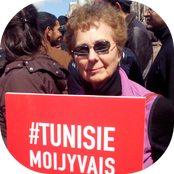
Karen Pfeifer is Professor Emerita of Economics at Smith College, having taught there from 1979 to 2010. Pfeifer's main teaching and research interest is comparative economic systems, with an area focus on economic growth and transformation in the Middle East and North Africa. She was named a Fulbright senior scholar in 1993-1994 and 2001-2002, and has done research in Algeria, Egypt, Jordan, Kuwait, Lebanon, the Palestinian Territories, Tunisia and Turkey. Scholarly projects in recent years include the relationship between the field of economics and Middle East Studies, neoliberalism and the uprisings in Tunisia and Egypt, possibilities for a new economic agenda in Tunisia and Egypt, Gulf Arab financial flows and investment, and applying the theory of social structures of accumulation to a sample of Middle Eastern economies. She has served as an editor of Research in Middle East Economics, Review of Middle East Economics and Finance, and Middle East Report. Pfeifer earned her Ph.D. in economics at The American University in 1981.
George DeMartino: Critique of Neoclassical Economics
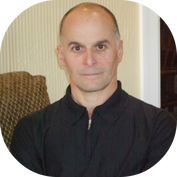
George F. DeMartino is Professor of Economics at the Josef Korbel School of International Studies, University of Denver. He is the author of Global Economy, Global Justice: Theoretical Objections and Policy Alternatives to Neoliberalism (Routledge, 2000) and The Economist’s Oath: On the Need for and Content of Professional Economic Ethics (Oxford University Press, 2011). He also co-edited with Deirdre McCloskey the Oxford Handbook of Professional Economic Ethics (2016), and is now at work on the book The Tragedy of Economics: Harm, Economic Harm, and the Harm Economists Do as they Try to Do Good. He has worked with the World Economic Forum, serving on its Global Agenda Council on “Values in Decision-Making,” and presenting his work at the World Economic Forum in Davos.
Dale Tomich: World Systems Theory
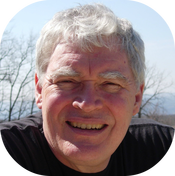
Dale Tomich received his PhD in history from the University of Wisconsin-Madison. He is Professor of Sociology and Deputy Directory of the Fernand Braudel Center at Binghamton University (State University of New York). He is author of Slavery in the Circuit of Sugar: Martinique and the World Economy, 1830-1848 (The Johns Hopkins University Press, 1990; Revised edition State University of New York Press, 2016) which was awarded the Distinguished Scholarship Award of the American Sociological Association and Through the Prism of Slavery: Labor, Capital, and World Economy. (Rowman and Littlefield, 2004). His current work is on Atlantic slavery and world-economy, including a collaborative international project on the making of plantation spaces in nineteenth century, Cuba, Brazil, and the US South. He has been visiting professor at various Universities in Brazil, the United States, and France.
Andrew Zimmerman: Peasant Politics & Rural Economies
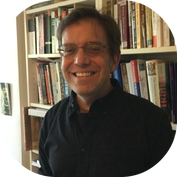
Andrew Zimmerman is professor of history at the George Washington University. He is especially interested in the struggle between revolutionary working-class politics and empire, capital, and dominant forms of knowledge. His research has focused on rural workers and the colonial state and capital in Tanzania, Togo, Germany, and the US South. He is the author of Anthropology and Antihumanism in Imperial Germany (Chicago, 2001) andAlabama in Africa: Booker T. Washington, the German Empire, and the Globalization of the New South(Princeton, 2010). He has also edited Karl Marx and Friedrich Engels, The Civil War in the United States, a collection forthcoming in the very near future from International Publishers. He is currently writing a history of the American Civil War as a transnational revolution against slave labor and wage labor. His next project will be an intellectual history of rural insurgency from the global French Revolution to global Maoism. Many of his publications can be found online here.


